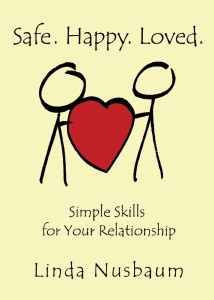I have had the great opportunity to work with many, many different types of couples in my practice as a couple’s counselor. I have also had the opportunity to write about different relationship problems, because I have encountered them or observed them in my friends, family, and clients.
So now I am writing about another issue that has been cropping up lately, and that is: what to do about the “explainer?”
Explainers Can and Will Tell You What Went Wrong

So, first of all, what is an explainer? This is a person who when he or she gets their feelings hurt turns to many, many words to explain what happened to them and how their partner failed them.
I have heard explainers in my practice many, many times. They sound rational—and they are. Explainers say what happened to them and why their partner was not serving them correctly. They are quite exquisite at explaining what went wrong and how their feelings got hurt.
Explaining What Went Wrong Isn’t Enough to Change Things
But I have also noticed that their partners are not changing even though their explaining mates continue to dialogue about what happened to them and what went wrong. In fact, these explainers are often so exhausted because they are out of energy trying to get their person to see what has happened, and even though they are watching how they come across, nothing seems to improve.
It is very hard for the explainer. They have a very good way of detailing the wrongs they have felt. Unfortunately, their way of explaining probably makes their partners feel terrible. I know this to be true as well. But here’s the rub. Even though an explainer is good at telling their partner what they did and how it made them feel, they lack the very skill that would invite their partner change. So all their efforts of careful explaining go unnoticed.
Explaining the Problem Isn’t Enough: You Have to State Your Needs

What the explainers don’t do is ask their partner to do something different. They leave out the most important and beneficial part: what their partner can do to help meet their needs. If someone gets their feelings hurt, they need something. They might need attention, to feel important, or to not get dismissed—there are lots of things they might need.
But most people don’t spend that much time studying those needs, which is unfortunate, because it’s the most important thing you can impart to your mate. Your partner needs to hear what would make you happy. If they always hear what makes you feel bad, no matter how well you say it, then they begin to feel that they are constantly disappointing you, and that makes them feel bad.
Asking for What You Want Invites Collaboration and Gives Your Partner Hope Things Can Improve
What explainers need is a way to ask for what they want. This final step is all that is needed and it is one that their partner’s can’t wait to hear and fill, because in all the cases where someone just explains their partner is usually left just feeling alone and terrible. If they found out what their mate needed and they could do what was asked of them, they would jump at the chance.
And that could change everything.
Learn How to Better Communicate Your Needs in a Relationship
Read a Book About Relationships
Learn how to better communicate your wants and needs, by reading Linda’s book Safe. Happy. Loved. Simple Skills for Your Relationship. It just might help you go beyond explaining, to building workable solutions that can help you and your loved one be happier. Give it a read.
Get Couples Counseling
Come in for couples counseling. Couples counseling can help you and your loved one get the most out of your relationship. It'll equip you with coping strategies and tools for communication that can help you argue less and love more.


